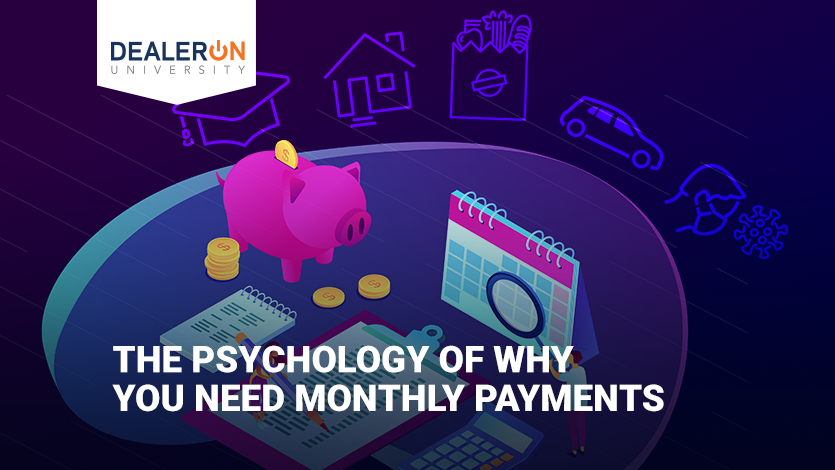

Money is such an important part of life that we often don’t think about it beyond, “It’d be nice to have more.” The truth is that money effects our minds in profound ways that are only beginning to be understood. You, as a car dealer, make a living on the third-most expensive thing a person is going to purchase in their lifetime, at a time when budgets are stretched to the breaking point. It’s important that you understand how this all impacts the most basic parts of your business. Specifically, how it all points to the necessity of a customer knowing their monthly car payment as early in the process as possible.
Source (money effects our minds): https://www.inc.com/will-yakowicz/this-is-your-brain-on-money.html
One of the most important things to keep in mind is that the human mind doesn’t really understand what money is. It’s an abstraction at best. Perhaps the best illustration of this is the fact that 70% of all lottery winners end up bankrupt. There are different hypotheses on the precise reason why, but they all tend to boil down to one thing, which is that after a certain point a lot of money loses its exact value. It’s just a lot.
Source (70%): https://www.cleveland.com/business/2016/01/why_do_70_percent_of_lottery_w.html
So when a car dealer tells you that a new car costs $30,000, it’s difficult to understand what that means for your budget. Right now, with COVID-19 changing the employment landscape in a number of ways, your customers are paying a lot more attention to their budgets. In any case, unless your last name happens to be Bezos, you don’t spend 30 grand in a month, and you certainly don’t have that cash on hand to spend in a lump sum. Essentially, that’s a meaningless number, useful only to tell you that the car in question is more expensive than a $25,000 car, but less so than a $35,000 car. A customer needs to know their monthly payment for it to be valuable. So while $30,000 is useless, $300 a month is a concrete value most customers will be able to understand and determine if it fits within their means.
Knowing this monthly payment instantly puts the car’s cost from the realm of fantasy to the realm of reality. A customer can begin figuring out if this is a deal that works for them, and if it’s not, you can pivot to one that might work. Do it early enough in the process and you aren’t losing that much work. Plus, customers tend to walk away when they feel like they aren’t being heard. A sales associate who works with the customer to get a deal they both can live with? That’s a sales associate who sees repeat business.
Source (customer dissatisfaction): https://www.customerexperienceinsight.com/why-customers-walk-away-and-how-keep-them-happy/
When dealing with money, fear, guilt, shame, and envy are the most prevalent emotions. There’s not much you can do about most of those, but you can absolutely do something about fear. Your goal—as someone selling a big ticket item in uncertain times—is to alleviate as much of that fear as possible. A customer who has less of a reason to experience negative emotions is more likely to buy a vehicle that they’re going to be happy with. A satisfied customer is one who is going to keep coming back and referring you to their friends and family.
What’s the biggest fear? If you said “money,” you’re in the right neighborhood. Research suggests that we process financial losses in the same way we process injury and other trauma. The fear I was going with was “the unknown.” In this case, you’re doubling up, since this is about the fear of unknown money. Again, unless the customer knows their monthly payment early in the process. See where I’m going with this?
Your goal is to not only sell products, but to create a loyal customer base. The prospect of customers knowing their monthly payments going in is a huge boon. Not only are you less likely to lose business when payments are unexpectedly high, but you’re far more likely to get the kinds of rave reviews that happy customers bring.


